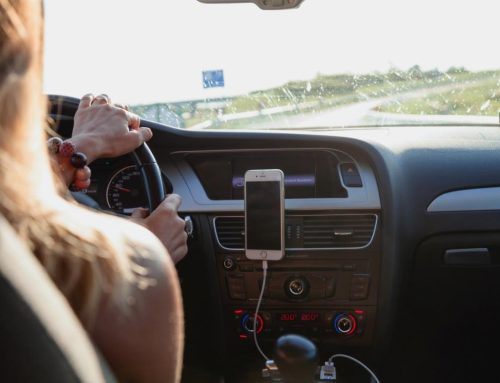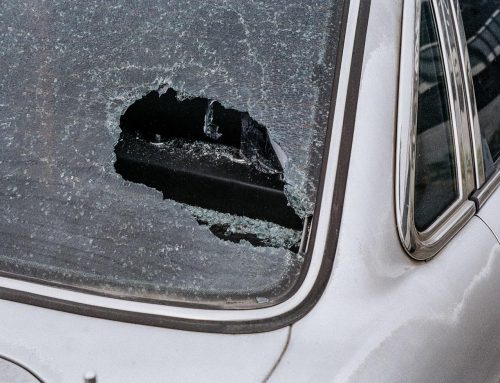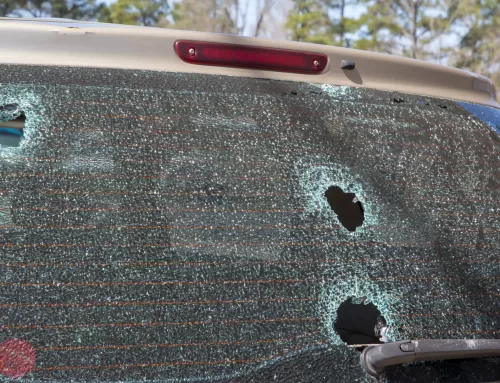Discover the various types of auto glass and learn how to distinguish between them with our comprehensive guide. Auto glass is an essential component of any vehicle, providing structural integrity, safety, and clear visibility. However, not all auto glass is created equal
Car windshields and windows aren’t made from ordinary glass since they’re prone to breakage and cause serious injuries in case of accidents. Instead, cars use safety glass, which is made with processed designs. It reduces the chances of glass breaking into pieces, which is especially helpful in the event of a crash.
Safety glass is one of the basic requirements for car manufacturers these days. To reduce the impact of an accident, automobile manufacturers mainly use two types of auto glass for their vehicles: laminated glass and tempered glass.
What is Laminated Glass?
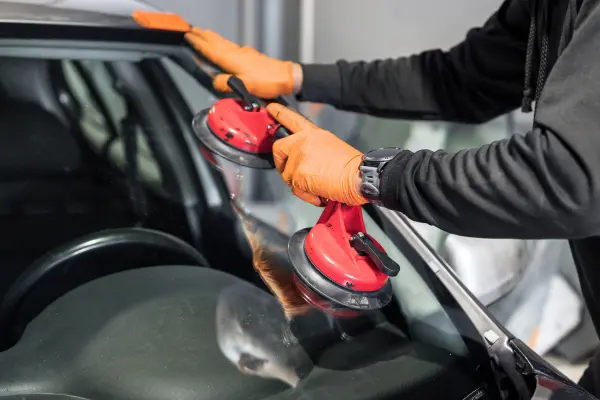
Laminated glass is installed on the front windshield of cars to protect the passengers in a head-on collision. It’s created with a pair of glass sheets stuck together using a layer of resin in between them at high temperatures. The resin used is called polyvinyl butyral (PVB), which ensures the strong bonding of the glasses.
The materials and processes used to manufacture laminated glass make it a robust shield to resist impacts and an ideal glass to install on the front windshield of cars. During a car crash, laminated glass won’t shatter into pieces, saving the passengers from sharp glass pieces that’d fly towards them with ordinary glass. The primary benefit of laminated glass is its safety feature; it’s designed to withstand impact without shattering into dangerous shards, offering crucial protection in the event of a collision.
Due to its robust nature, laminated glass is used in several other things, such as floors, glass roofs, aquariums, and more.
What is Tempered Glass?
Tempered glass is known to be four times as strong as ordinary glass. It’s created using a single sheet of ply glass, which goes through the process of ‘quenching’, in which the glass is heated to extreme temperatures and immediately made to cool rapidly.
This heating and cooling process makes tempered glass much stronger than regular glass, and when it breaks, it shatters into small, granular pieces rather than jagged shards, minimizing the risk of injury. Commonly used in side and rear windows of vehicles, tempered glass is chosen for its durability and safety. Its ability to withstand high impacts makes it an ideal choice for these areas of a car, ensuring the occupants’ safety.
Unlike laminated glass, which usually resists breakage after an impact, tempered glass breaks into thousands of small pieces with dull edges, eliminating the danger posed to passengers due to big glass pieces with sharp edges.
Difference Between Laminated & Tempered Glass
Due to the different processes used in their designs, laminated and tempered glasses have several differences.
- Tempered glass has a higher resistance to breakage load, making it stronger than laminated glass. Laminated glass cracks easily compared to tempered glass, but it can be easily repaired. On the other hand, if your car’s tempered glass breaks, you’d have to replace it in its entirety.
- Laminated glass acts as a great shield to block UV rays. Compared to tempered glass, which only blocks 60% of the UV rays, laminated glass blocks about 99% of the UV rays.
- Laminated glass is quite expensive compared to tempered glass. Laminated glass will generally cost you about 3–4 times the cost of tempered glass.
- By law, car manufacturers can’t use anything other than laminated glass for the front windshield. However, for side mirrors and windows, you can choose either tempered glass or laminated glass.
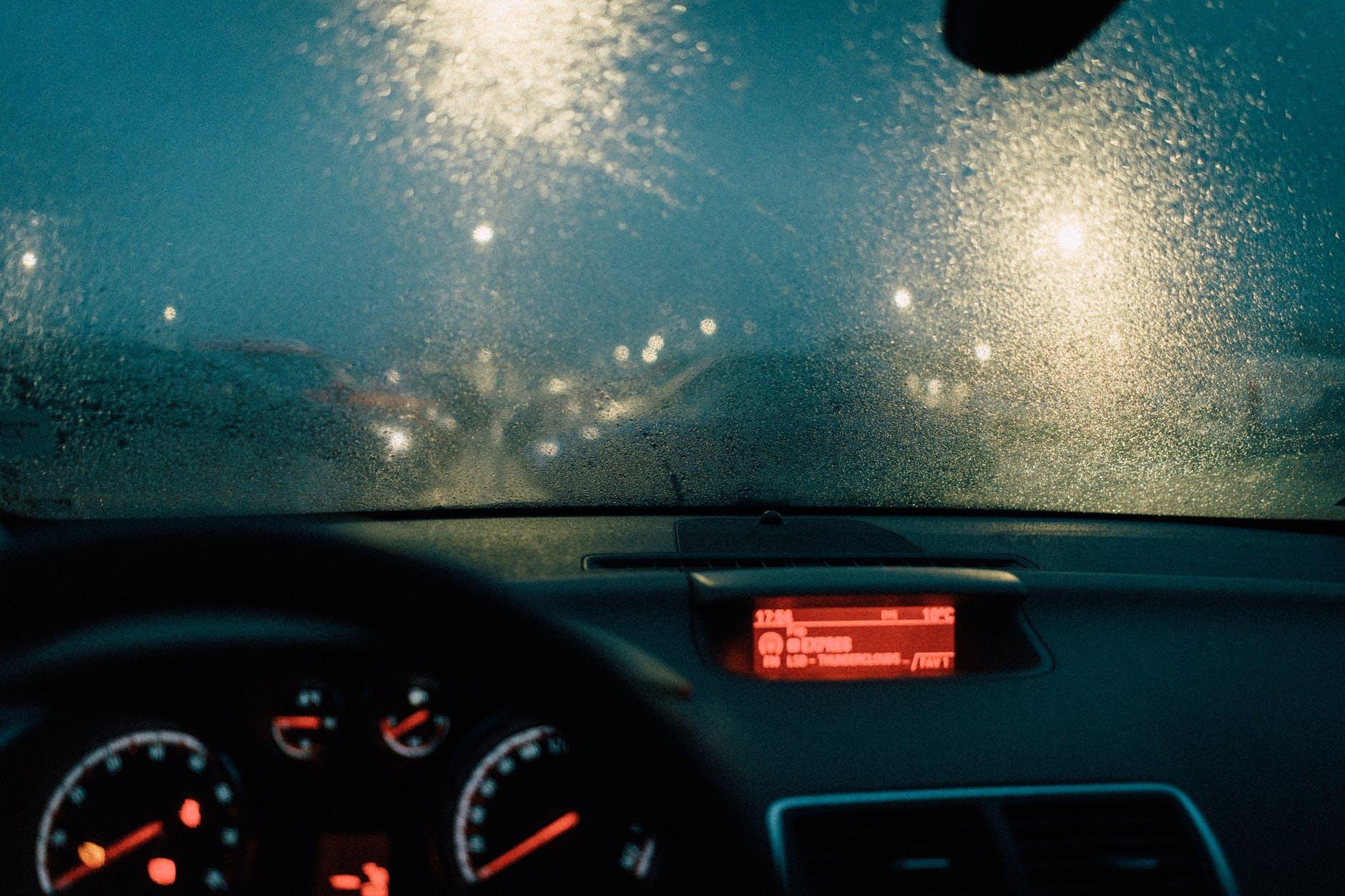
Tinted and Coated Glass
Tinted and coated glasses are popular choices for drivers looking to enhance their vehicle’s aesthetics and functionality. Tinted glass, created by adding a layer of film or colouring the glass itself, helps reduce glare and protect against UV radiation. Coated glass, on the other hand, includes a thin layer of material applied to the glass, offering benefits like heat reduction, UV protection, and sometimes even self-cleaning properties. However, it’s important to be aware of local regulations regarding tint levels to ensure compliance and safety.
Acoustic Windshield Glass
Acoustic windshield glass is a specialized type designed to reduce noise entering the vehicle. This type of auto glass uses a special interlayer that dampens sound, making for a quieter and more comfortable driving experience. Ideal for drivers who spend significant time on highways or in noisy environments, acoustic windshield glass can significantly improve ride quality by minimizing distractions and stress from external noise.
Heated Windshield Glass

Types of Auto Glass – heated windshield glass
Heated windshield glass provides an efficient solution to one of winter driving’s most common problems: ice and snow accumulation. By incorporating a thin layer of heating elements between layers of glass, heated windshields can quickly melt away frost or ice, improving visibility and safety in cold weather conditions. While more common in higher-end models, heated windshield options are becoming increasingly accessible for a broader range of vehicles, offering drivers an extra layer of comfort and convenience during the colder months.
Types Of Auto Glass Conclusion
Auto glass is a crucial component of your vehicle, impacting safety, comfort, and efficiency. Understanding the different types of auto glass available allows you to make informed decisions, ensuring you choose the right glass for your needs. Whether prioritizing safety features, noise reduction, or climate control, there’s a glass type suited to every driver’s requirements. Consult with a professional to select and install the perfect auto glass, enhancing your driving experience while ensuring maximum protection and comfort.
When selecting auto glass, consider factors such as safety, climate, and the specific needs of your vehicle. While laminated and tempered glasses are standard for windshields and side windows, respectively, options like tinted, coated, and acoustic glasses can provide added benefits tailored to your preferences and driving conditions. Always consult with a professional for advice on the best types of auto glass for your vehicle, ensuring it meets safety standards and is installed correctly for optimal performance and protection.
Whatever you choose, rest assured that it’ll provide you with maximum safety. Crystal Glass is a commercial glass repair service provider that provides services like windshield replacement in Calgary.

